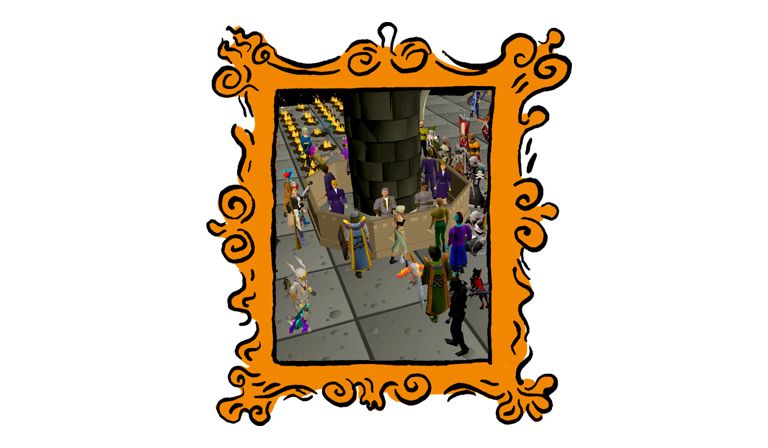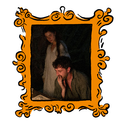No, please don’t close this email—this isn’t spam. I am being completely serious. Just bear with me for a moment while I explain.
There I was, bounding over the rooftops of a desert settlement as I was wont to do at that time of the day, when another man—also bounding over the rooftops—began singing the lyrics to “I Want it That Way” by the Backstreet Boys. “You are my fire, the one desire…”
“Beautiful,” I said to him, as together we swung from a palm tree onto the adjacent roof before finally clambering back down to earth from a well-placed series of crates. “Are you new here?” the man asked me, then adding before I could answer: “Do you want five million?” I didn’t believe him, until he showed me the money. “I wouldn’t want to give you an unfair advantage,” he winked as I took it. Then he put on a winged helmet and took out a gigantic magical whip.
“Do you want to join my clan?” he said.
These kinds of encounters are not at all common in Old School RuneScape, but it did suggest to me a certain understanding—on the part of my mysterious benefactor—of what we’re all doing here. Most who join this online game are clamouring to level up and get back to where they left things off when they last played the original as teenagers—just as I had done—probably around 2007. And money, even fake digital money, helps.
Launched in 2001 by Cambridge-based Jagex, RuneScape was once among the most popular massively multiplayer online (MMO) fantasy games of the early 2000s. It was notorious among its competitors: in an era when “the graphics”—which is to say, better and better visuals—were a major selling point, RuneScape always looked a little blocky and polygonal, even dated. Yet it compensated with fascinating lore and a wicked, Monty Python-inspired sense of humour: far from the supposed chosen one fulfilling his or her destiny, your RuneScape character is… just some guy, fumbling from storyline to storyline trying their best to rectify their own (and often hilarious) mistakes.
The problem with (or for) MMOs is that their popularity and longevity tends to rest on there being constant batches of new content to explore, and RuneScape was no different. Over the years, it went through a series of major overhauls, including to its blocky polygonal visuals. The story also lost some of its comical self-awareness: in new quests your character still fumbles, but this time very much towards their inevitable destiny.
Whether the game’s player base plummeted at this point due to these changes or simply because its most dedicated following came of age is difficult to tell. In any case, and partially in response to this drop in popularity, in 2013 Jagex announced a “new” version of RuneScape based on an old archival backup from 10th August 2007. And thus Old School RuneScape, polygons and all, was reborn. Nowadays—and no doubt to Jagex’s chagrin—Old School has a larger and more active player base than its flagship product.
After starting to play it just a few months ago myself, it’s not hard to see why. Whereas the “real” RuneScape looks like any other generic fantasy game, Old School stands out. The polygons no longer look dated, they’re iconic—or at least they are to these (possibly rose-tinted) eyes.
Strictly speaking, Old School isn’t actually a preservation of the “original” RuneScape, a spurious term if it ever existed; the golden era that Old School supposedly captures was itself the product of constant change and renewal. The game’s launch iteration of 2001, when the visuals were even more blocky and polygonal, would be unrecognisable to most who played it in 2007. Old School RuneScape, then, is not so much a time capsule as an experiment in “what if”: if Jagex hadn’t taken the game in this or that direction, had not chosen to do this or that. As it continues to get updated—as it must do, to survive—there is a risk that one day it will tip, for the second time, beyond what we might recognise as its “original and best”.
It is impressive enough of any game to have such an active community some two decades later, but change in MMOs—as in our life circumstances—is unavoidable. One day I’m not going to play anymore, either because I’ve finally scratched that nostalgic itch or because the game that can scratch that itch no longer exists. But you can bet that I’m going to make sure I spend my five million long before that time comes.










